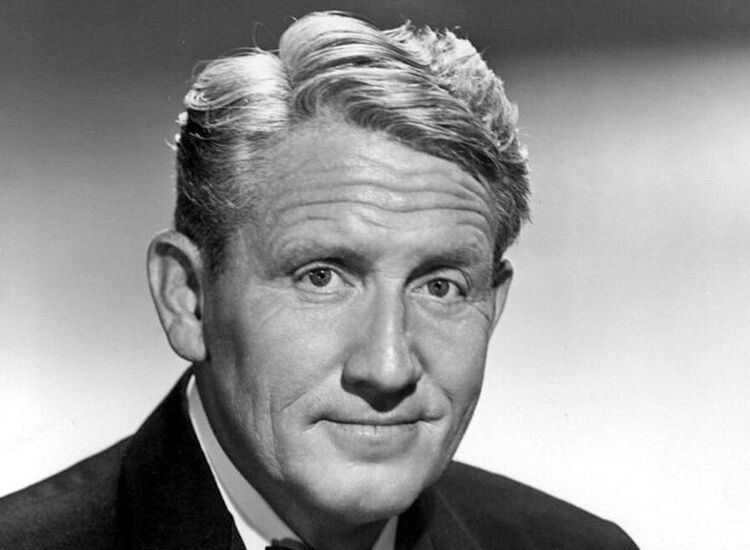Thomas Fleming, who has died, was a prolific novelist and historian. He also wrote, in his late 70s, “Mysteries of My Father: An Irish-American Memoir.” Thomas “Teddy” Fleming Sr. returned from active service in Europe in World War I to run the Sixth Ward for Mayor Frank Hague’s political machine. In an Echo interview at the time of the book’s publication, Fleming discussed his background growing up in Jersey City, his parents, the Catholic church and his faith, and his long career, including the time when he collaborated on a book with Harry Truman, a president who'd cut his political teeth in another Irish machine. The article first appeared in the July 13-19, 2005, issue of the paper.
By Peter McDermott
Thomas Fleming would interpret the recovery of a ring as a message from the past. For Gil Malmasson, well known for his collection of Roman-Celtic artifacts, it was as intriguing a find as he'd ever made.
Its inscription stated simply: “From Mayor Frank Hague to Sheriff Teddy Fleming 1945.”
The Frenchman had unearthed it, aided by his metal detector, in the Argonne Forest in 1998. Some research told him that Hague was the mayor of Jersey City, N.J., from 1917 until 1947.
He emailed the communications director at City Hall: “Can you help me find Sheriff Fleming or his children?” It might easily have gone unanswered or gotten a perfunctory reply. But Gene Scanlon, then in his early 70s, had gone to school with Fleming’s elder son, a writer based across the river in Manhattan.
Thomas Fleming had lost the ring in March 1968, while researching an article for “American Heritage” magazine to mark the 50th anniversary of the battle that took place in the Argonne Forest.
He flew to France, where he arranged for Malmasson, a 31-year-old professional photographer, to place the ring on his finger where he’d lost it – not far from where his father had fought heroically 80 years before.
Argonne was the decisive battle of World War I. It was the pivotal moment, too, in the life of Thomas “Teddy” Fleming Sr. It wasn’t that he hadn’t led a full and interesting life up to that point. In fact, he’d been a professional boxer and then a professional baseball umpire on the verge of breaking into the National League. In the U.S. army, he was quickly promoted to sergeant by virtue of his age – 29.
But on the battlefield he learnt that he was a leader of men. Before the war, he’d been a militant advocate of voting the straight Democratic ticket; after it, a political career seemed a natural fit for a newly commissioned officer.
“I admired his courage, his nerve, his incredible fidelity to telling the truth, to keeping his word,” said the writer in an interview. “He told it like it was.”
Fleming Sr. never read books; Fleming Jr. has written more than 25 novels and almost as many works of history and biography. The older man played the tough guy all his life; his son, has been something of the “goody goody type.” Nonetheless, he feels that his writing has always shown some of his father’s nerve; and he’s always been prepared to tell it like it is. And when his father seemed to be nudging him from beyond the grave to write their remarkable Irish-American story, he couldn’t but reveal the whole, unvarnished truth. He would, for example, write about episodes that still cause “muted anguish” more than 60 years later.
The core of the “Mysteries of My Father” storyline is about how pretty, sensitive Katharine Dolan, from the “lace curtain” Irish, married a handsome war hero, Lt. Teddy Fleming, who’d grown up in Jersey City’s appalling tenements, and how then she’d come to despise him and the Hague machine, AKA the Organization, and what it stood for.
When he was 10, she told her elder son that the Republicans were amateurs; the Democrats were the real pros at stealing votes and nowhere did they do it better than in the Sixth Ward run by his father.
“I sided with my mother for a while,” the 78-year-old Fleming recalled. “She really did a number on me.”
In a crucial turning point in their relationship, Fleming turned to his father beside him at the wheel of a car and said: “You don’t love me. You don’t love anybody. You just like being a big shot — that’s all that matters to you.”
“He slammed on the breaks and got out of the car and stumbled around in this field beside the highway, and I was really scared,” Fleming remembered. “He was crying and I never saw him cry before. And he said: ‘Don’t you know – you and your brother — you’re all I’ve got?’ That was his admission that his marriage had collapsed.”
FDR ally
It was an extraordinary display of emotion for this son of County Mayo immigrants who from a tender age had to defend his newsboy’s corner with his fists. His father Davey, though he worked hard, could never command more than the most basic income, for he could neither read nor write. He raged against Jersey City’s Protestant majority and the British back home. His son Teddy raged against the family’s poverty, too; however, he adapted well to the city’s “them and us” bare-knuckle politics. He would work the system.
Nobody worked it, though, quite like Hague, who forged the faction-ridden Irish – 22 percent of the population — into what the author called a “political juggernaut.”
Hague was a household name in his day and the most significant political figure in the state, as well as one of President Franklin Roosevelt’s most important allies. Nowadays, if he’s remembered at all, it’s for his personal corruption. All members of the Organization gave back three percent of their income to a fund that Hague came to use as a private bank account.
But that’s only part of the story, Fleming said.
“He was a unique boss in many respects. He didn’t take any money from the corporations, from the WASPs, who were running America in 1917,” he said. “He was a reformer. The railroad owned 25 percent of Jersey City; never paid a nickel in taxes.”
Hague also understood that women’s suffrage changed politics. Certain vices, most notably prostitution, would have to be stamped out.
“Once women came into politics, you couldn’t run a political machine the way Tammany Hall ran New York, with every brothel owner paying off to the cops,” Fleming said. “So he decided he was going to clean up Jersey City, which he did. It had been a sewer at the turn of century — it was where you went to stay drunk, because nothing ever closed.”
And the Hague regime took a remarkably hard line on crime in the era of Al Capone and John Dillinger. “Nobody got shot on the streets of Jersey City. Hague’s Irish-American cops were just too tough,” the author said. “If those guys ventured into Jersey City, they suddenly had a nightstick parting their hair, and found themselves on a ferry to New York.
“But the greatest thing about Hague was his incredible ability to organize and make sure that people did the job,” Fleming said.
He recalled that his father often laughed at Tammany’s ineptness across the Hudson River in New York. In contrast, Hague and his men didn’t need to steel votes; they were just too good at getting real voters to the polls.
His parents’ marital difficulties aside, growing up in Jersey City’s ruling class was a “very pleasant experience.”
Fleming recalled how his father’s entry in his 8th grade yearbook disturbed this idyll for the first time. His mother, ever the idealist, wrote: “Aim high.” But the boss of the Sixth Ward wrote several lines of a poem that ended: “Here’s to the friend that will stick by me when I’m down and out.”
“This absolutely blew my mind,” Fleming recalled. “This man, as I saw him in the 8th grade, was a very powerful guy. He always had a roll of bills in his pocket. He could choke the proverbial horse. He rode around in a seven-passenger Cadillac with a chauffeur. He had power. People approached him with great respect and of course, with some cordiality, too.
“I couldn’t picture this. I said: ‘What’s he talking about? How could this man ever be down and out?’
Fleming said it was the beginning of an appreciation of “who my father really was,” and an understanding of the terrible poverty he’d grown in.
His sons would never know material hardship, but they grew up nonetheless in an Irish “ghetto” or “sociological island.” Fleming’s fascination with the Revolutionary period – about which he’s written several books — was a conscious effort to reach beyond that narrow identity and to examine where America began.
He physically left the Irish world behind, however, when he joined the navy at the very end of World War II.
Winds of change
The Organization was on its last legs. The returning servicemen were no longer prepared to take orders from World War I veterans like Teddy Fleming, though he managed to outlast most of his peers.
His son saw the winds of change first hand at Fordham College, where half of his class were fellow veterans.
“They [the faculty] treated us like we were just out of high school,” Fleming said.
He recalled a notice that said that any student staying out after 9 p.m. on Saturday night needed a letter from his mother. One scrawled a reply beside it: “Is it okay if I get a letter from my wife?”
“One Jesuit professor said we shouldn’t read the New Yorker magazine; it was an ‘occasion of sin.’ And we asked why and he said it was too secular. We laughed in his face; the whole class just burst out laughing.”
Fleming’s first novel was about the Catholic church, whose leaders he saw as “much too authoritarian and arrogant in their dealings with the laity.” He was long an established author before it was published 15 years later.
He said he’d always wanted to write about Pius IX’s imposition of papal infallibility at the Vatican Council in 1870.
“It was totally corrupt. How that pope rammed that down the throats of the bishops and then the laity is an incredible story,” he said. “It’s lying out there for a historian to tell it, particularly in today’s atmosphere.”
Fleming recounted the story of the Irish-American bishop of Little Rock, who strongly resisted, but eventually found himself in a small minority of dissenters. When asked by journalists what had happened, the archbishop, referring to the See of St. Peter, said: “The Big Rock rolled over the Little Rock.”
Fleming laughed, then added: “But the church has through so many periods in the past when things have looked terrible. I’m a believer, I have hope and faith.”
Teddy Fleming discouraged his son when he heard he was being groomed for the priesthood, saying simply it would be a waste.
Of the Irish politicians who ran Jersey City, the writer said: “They weren’t very devout, to put it mildly. The church was another aspect to the political world in which they moved. Their whole focus was this experience of American freedom. They wanted their children to inherit it, to participate in it.”
Fleming added: “He wanted me to become a lawyer.” He certainly didn’t want either of his sons to succeed him as a leader of the Sixth Ward.
But the writer and his generation were steeped in politics. He described himself a Truman Democrat, “moderate and middle of the road.”
In the last years of his life, Truman, who had been lifted to national prominence by the Pendergast machine Kansas City, asked Fleming to collaborate on a book about him. He’d admired his biography of Jefferson.
When Fleming got down to Missouri, the former president said: “Young man, there’s only one thing we don’t know about you. Have you always been a Democrat?”
Fleming recalled: “I looked him in the eye and I said. ‘Mr. President, I’m from Jersey City, my father was the leader of the Sixth Ward and as far I know, nobody in the family has ever voted anything but the straight ticket.”
For the couple of weeks he was there, he had lunch and dinner each day with the Trumans. “Every so often Mrs. Truman would put down her knife and fork, and beam across the table at me, and she’d say ‘You never voted anything but the straight ticket. I like that,'” he recalled, laughing. “She was a passionate Democrat.”
After a series of journalistic jobs, Fleming became executive editor of Cosmopolitan. “That was before Helen Gurley Brown got her mitts on it,” he said.
Fleming said that his father never understood the idea of a writing career. Even his efforts to get to him to read in his retirement were largely unsuccessful. One title piqued his interest, however. But he finally dismissed “Famous Criminals of Our Time,” saying “What a phony book, I never met one of those guys.”
His son said: “It gives you an idea of the company he kept.” But that was before his political career took off. Hague didn’t approve of his men being seen with hoodlums.
Nor could they run around on their wives. Teddy Fleming never separated from Katharine, who died of cancer in 1953.
Fleming developed arteriosclerosis, and his leg became gangrenous. He said it was like “somebody putting a hot nail through your toe, every 10 seconds.” When he recovered consciousness after the operation to remove his leg, he smiled at his son, saying: “Teddy [as the author was also known], I’ve been a son of a bitch for most of my life, but from now on, I’m going to try to be a nice guy.”
Fleming later found other poems, similar in nature to the one about being “down and out.” hidden in his father’s papers. He believes he was on his own spiritual journey throughout much of his life, one that had little to do with the Catholic Church.
Teddy Fleming died in 1957, the year after Hague. By that time, Fleming had married Alice Mulcahey. The couple, who live on Manhattan’s Upper East Side, have a daughter and three sons, all of whom pursued successful careers. The writer’s eldest son, Thomas Fleming III, is a lawyer.
Somewhere, he said, Teddy Fleming is keeping track and is pleased.









